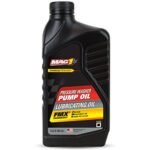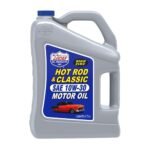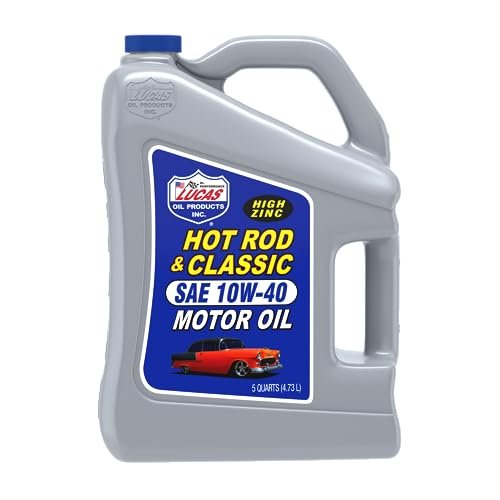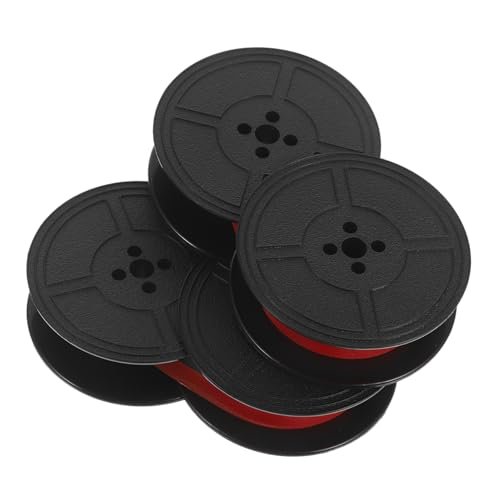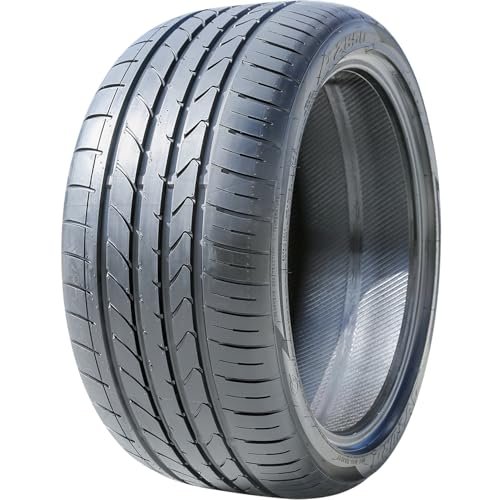Every car engine needs oil to run smoothly. Good oil keeps parts working well.
Choosing the right oil can protect your car and improve performance. In this blog post, discover the best oils for car engines. Learn what makes some oils better than others and why it’s important to pick the right one. We’ll explore how different oils can affect your car’s health and efficiency.
Whether you drive daily or take long trips, knowing the best oil helps your engine last longer. Get ready to dive into the world of car oils and find the perfect match for your vehicle. Your engine deserves the best care, and the right oil can make all the difference.

Credit: www.caranddriver.com
Importance Of Engine Oil
Engine oil is vital for your car’s health. It serves several crucial functions. Understanding its importance can help maintain your vehicle efficiently. Good engine oil keeps your car running smoothly. It protects the engine from wear and tear. Let’s explore why engine oil matters.
Role In Engine Performance
Engine oil reduces friction between moving parts. Less friction means better performance. It helps parts move freely and reduces heat. Proper oil ensures engines run quietly and efficiently. Clean oil can improve fuel efficiency. It keeps your car performing at its best.
Impact On Longevity
Quality engine oil extends engine life. It prevents corrosion and rust in engine parts. Protecting these parts means fewer repairs. Changing oil regularly keeps your engine healthy. Good oil can save money on maintenance. It helps your car last longer.
Types Of Engine Oils
Choosing the best oil for car engines involves understanding different types. Synthetic oils offer superior performance and protection, ideal for high-tech engines. Conventional oils are suitable for older engines and offer basic protection. High-mileage oils help maintain cars with over 75,000 miles, reducing leaks and oil consumption.
Choosing the right engine oil for your car can feel like a daunting task. With so many options available, it’s essential to understand the different types of engine oils and their benefits. Whether you’re a car enthusiast or just someone who wants to keep their engine running smoothly, knowing the distinctions between conventional, synthetic, and blend oils can help you make an informed decision. ###
Conventional Oil
Conventional oil is the most basic type of engine oil. It’s derived from crude oil and is refined to meet specific standards. Many drivers use it because it’s often the most affordable option. However, it might not offer the same level of protection as its synthetic counterparts. You might remember the first time you changed your oil and opted for conventional oil because it was easy on your wallet. While it works well for older vehicles or those with simple engines, it’s essential to change it more frequently. If you drive in extreme conditions, you may find this type less effective. ###
Synthetic Oil
Synthetic oil is engineered to provide superior performance. It’s designed to handle extreme temperatures and pressures, making it an excellent choice for high-performance vehicles. Unlike conventional oil, synthetic oil offers better lubrication and reduces engine wear. Imagine driving on a hot summer day and not worrying about your engine overheating. Synthetic oil can give you that peace of mind. It lasts longer between changes, which can save you time and hassle. If you want your engine to perform at its best, synthetic oil might be worth considering. ###
Blend Options
Blend options offer a middle ground between conventional and synthetic oils. These oils combine the affordability of conventional oils with the enhanced performance of synthetic oils. They are suitable for those who want a balance between cost and performance. Have you ever wished for the benefits of synthetic oil without the high price tag? Blend oils can offer a practical solution. They provide better protection than conventional oils and are often recommended for vehicles with moderate driving demands. So, what type of oil will you choose for your car? Each type offers distinct advantages, and understanding your driving needs can help you pick the best option. Whether you prioritize cost, performance, or a bit of both, there’s an engine oil type that suits your vehicle perfectly.
Viscosity Ratings Explained
Understanding viscosity ratings helps you choose the best oil for car engines. It determines how oil flows at various temperatures. Selecting the right viscosity ensures engine efficiency and longevity.
Viscosity ratings are crucial when choosing the best oil for your car engine. They determine how well the oil flows at different temperatures, which directly impacts engine performance and protection. Understanding these ratings helps you select the right oil to keep your engine running smoothly and efficiently.
Understanding Sae Ratings
The Society of Automotive Engineers (SAE) developed a standard to classify motor oils based on their viscosity. This is known as the SAE rating and is typically represented by numbers, like 10W-30. The “W” stands for winter, indicating the oil’s performance in cold temperatures. The number before the “W” shows the oil’s viscosity at low temperatures, while the number after the “W” indicates its viscosity at high temperatures. A lower number means the oil is thinner and flows more easily at that temperature. For example, 5W-30 oil is thinner at cold temperatures compared to 10W-30, providing better cold start performance.
Choosing The Right Viscosity
Choosing the right viscosity for your car is essential for optimal engine performance. Check your vehicle’s owner’s manual for the recommended oil viscosity. Manufacturers design engines to operate efficiently with specific oil viscosities. Consider the climate in your area. If you live in a cold region, a lower winter rating, like 0W or 5W, ensures smoother starts in freezing temperatures. On the other hand, if you experience scorching summers, a higher viscosity, such as 30 or 40, provides better protection at high temperatures. Have you ever noticed that your car struggles to start on cold mornings? Using an oil with the wrong viscosity could be the culprit. Adjusting the oil viscosity according to the season can make a significant difference in engine performance. Choosing the right oil viscosity isn’t just about following recommendations; it’s about understanding your car’s needs and the environment it operates in. Are you giving your engine the protection it deserves?
Top Synthetic Oils
Choosing the best oil for your car engine can be a game-changer for its performance. Among the various types available, synthetic oils have gained a reputation for their superior quality. But which brands stand out in the crowded market? Dive into the world of top synthetic oils, and discover how they can enhance your driving experience.
High-performance Brands
When it comes to high-performance synthetic oils, brands like Mobil 1, Castrol Edge, and Royal Purple are often the favorites. These brands have earned their stripes with a commitment to innovation and quality. Mobil 1, for instance, is known for its exceptional engine cleanliness and protection.
Castrol Edge, with its Fluid Titanium Technology, offers stronger oil film strength, reducing friction and wear. Have you ever tried Royal Purple? It not only boosts horsepower but also improves fuel efficiency. These oils are designed to give your engine the edge it needs for optimum performance.
Benefits Of Synthetic Oils
Switching to synthetic oils can be one of the best decisions you make for your car. Synthetic oils provide better protection against engine wear due to their uniform molecular structure. This means your engine parts move more smoothly, reducing friction.
They also excel in extreme temperatures. Whether it’s freezing cold or scorching hot, synthetic oils maintain their viscosity, ensuring your engine runs smoothly. Plus, they resist oxidation, reducing the frequency of oil changes. Have you ever considered how fewer oil changes could save you money and time?
With synthetic oils, you’re not just investing in better engine performance. You’re also contributing to a cleaner environment, as they produce fewer emissions. Aren’t these benefits worth considering for your next oil change?
Advantages Of Conventional Oils
Conventional oils offer reliable engine protection with effective lubrication. They are cost-effective and widely available. These oils help in reducing friction and preventing wear.
When it comes to maintaining your car’s engine, choosing the right oil can make all the difference. Conventional oils have been a staple for many drivers due to their tried-and-tested reliability. They offer several advantages that might just make them the perfect choice for your vehicle. Whether you’re concerned about cost, performance, or specific driving conditions, conventional oils have something to offer.
Cost-effectiveness
Conventional oils are generally more affordable compared to synthetic options. This makes them an attractive choice for budget-conscious drivers. If you have an older vehicle or don’t put a lot of miles on your car, conventional oils can provide adequate protection without breaking the bank. They allow you to save on maintenance costs while still ensuring your engine runs smoothly. Additionally, the widespread availability of conventional oils means you won’t have trouble finding them at local stores or service stations. This convenience can translate to further savings in both time and money.
Best Use Scenarios
Conventional oils perform well in many everyday driving conditions. They are a solid option for vehicles with lower mileage and those primarily used for short trips. If your car’s engine doesn’t require high-performance or high-temperature oils, conventional options are sufficient to keep things running efficiently. They are especially good for older vehicles that have been running on conventional oils since day one. Think about the climate and driving environment your car usually encounters. Conventional oils can handle moderate climates and normal driving conditions effectively. Is your daily commute a short drive to the office or a leisurely weekend trip? Conventional oils might be just what you need. Personal experience taught me that not every car needs the fanciest oil on the shelf. My trusty old sedan has been running on conventional oil for years without a hiccup. It’s a lesson in understanding that sometimes the simplest solution is the best. Have you considered what type of oil your car truly needs? Conventional oils might just be the perfect match, offering reliability without unnecessary extras.
Oil Additives And Their Benefits
Oil additives play a crucial role in enhancing engine performance. They offer benefits that go beyond basic lubrication. These additives can improve fuel efficiency, reduce engine wear, and extend oil life. Understanding the types and benefits of oil additives can help you choose the best oil for your car engine.
Types Of Additives
There are various types of oil additives available. Each serves a specific purpose. Detergents help clean engine deposits. Dispersants keep debris suspended in the oil. Anti-foaming agents prevent foam formation. Viscosity modifiers ensure oil flows smoothly at different temperatures. Friction modifiers reduce engine wear. Each additive contributes uniquely to engine health.
Enhancing Engine Protection
Oil additives enhance engine protection by minimizing wear and tear. They create a protective layer on engine parts. This reduces friction and heat buildup. Additives also help prevent rust and corrosion. They keep engine components clean and efficient. By choosing oils with the right additives, you can boost engine longevity. This means fewer repairs and better performance.
Choosing Oil For Different Climates
Choosing the right oil for your car engine is crucial, especially considering the climate you live in. Have you ever wondered why your engine might perform differently in winter compared to summer? The type of oil you use can significantly impact your vehicle’s efficiency and longevity. Let’s dive into how different oils cater to varied climate conditions.
Cold Weather Oils
In chilly climates, your engine needs oil that remains fluid even when temperatures drop. Thin oils like 5W-30 or 0W-20 are popular choices because they flow easily at low temperatures. This ensures that your engine components are well-lubricated during those frosty morning starts.
Have you ever struggled with starting your car on a freezing day? Using a thinner oil can make a world of difference. It reduces engine wear and tear by providing immediate lubrication. Consider checking your owner’s manual for recommendations tailored to cold weather.
Hot Weather Oils
In scorching climates, your engine faces a different challenge. It needs oil that maintains its viscosity under intense heat. Oils like 10W-40 or 20W-50 are designed for high-temperature stability. They prevent the oil from thinning out and losing its protective qualities.
Imagine driving in the summer heat and noticing your engine running smoother than before. That’s the power of using the right oil for hot conditions. It helps prevent overheating and maintains optimal performance. Remember, your car’s manual might have specific suggestions for summer driving.
Choosing the right oil isn’t just about following guidelines—it’s about enhancing your driving experience. What oil type will you choose to conquer your climate challenges?
Eco-friendly Oil Options
Choosing eco-friendly oil options enhances car engine performance while protecting the environment. Synthetic and biodegradable oils offer efficient lubrication with reduced emissions. Opting for these oils supports sustainable driving practices without compromising engine health.
Switching to eco-friendly oil options for your car engine is a smart move. It’s not just about being kind to the planet; it’s about ensuring your engine runs smoothly while reducing your carbon footprint. With the rise of environmental awareness, more drivers are considering alternatives that are both effective and sustainable. ###
Biodegradable Oils
Biodegradable oils are gaining traction due to their minimal impact on the environment. These oils break down quickly and naturally, reducing pollution risks. Using biodegradable oil means you’re not only maintaining your car’s performance but also contributing to cleaner soil and water. Imagine driving knowing that if any spillage occurs, it won’t harm the environment. That’s peace of mind that’s hard to beat. Many manufacturers are developing high-performance biodegradable oils. Next time you’re changing your oil, check for labels that indicate the product is biodegradable. ###
Recycled Oil Choices
Recycled oil is another fantastic eco-friendly option. Did you know that used oil can be cleaned and repurposed? This process saves resources and energy. Choosing recycled oil doesn’t compromise quality. In fact, it meets the same standards as new oil and works just as effectively. Think about it: you’re supporting sustainability and getting the same reliable performance for your vehicle. Next time you’re at the auto shop, ask about recycled oil options. This small change can make a significant difference in reducing waste. Are you ready to make an impact with your oil choice? Consider these eco-friendly options and drive with a clear conscience.
Common Oil Myths Debunked
When it comes to maintaining your car, engine oil plays a crucial role. However, there’s a lot of misinformation floating around. These oil myths can lead you to make unnecessary choices and sometimes even harm your car’s performance. Let’s clear the air and debunk some of the most common oil myths.
Myth Of Frequent Oil Changes
Many people believe that you need to change your oil every 3,000 miles. This myth was born in a time when oil technology was not as advanced. Today, most modern engines can go much longer between oil changes. I’ve personally seen my car’s performance improve even when stretching the interval to 5,000 or even 7,500 miles.
Before following the 3,000-mile rule, check your car’s manual. Manufacturers often provide specific recommendations tailored to your vehicle’s needs. You’ll save money and time by avoiding unnecessary oil changes.
Synthetic Vs. Conventional Misconceptions
Synthetic oil is often dismissed as unnecessary or too expensive. Some believe conventional oil is just as good. This isn’t always true. Synthetic oil offers better protection in extreme temperatures, reducing engine wear. If you live in an area with harsh winters or scorching summers, synthetic oil might be worth the investment.
On the flip side, if you drive a standard vehicle with regular conditions, conventional oil can be perfectly adequate. Consider your driving habits and environment. Making informed choices based on your specific needs can optimize your car’s performance.
Have you ever wondered if your car could benefit from synthetic oil? It’s a question worth pondering, especially when considering the long-term health of your engine.
By understanding these myths, you empower yourself to make better choices. Your engine’s longevity and performance depend on informed decisions. So next time you think about your oil needs, remember these insights and drive with confidence.
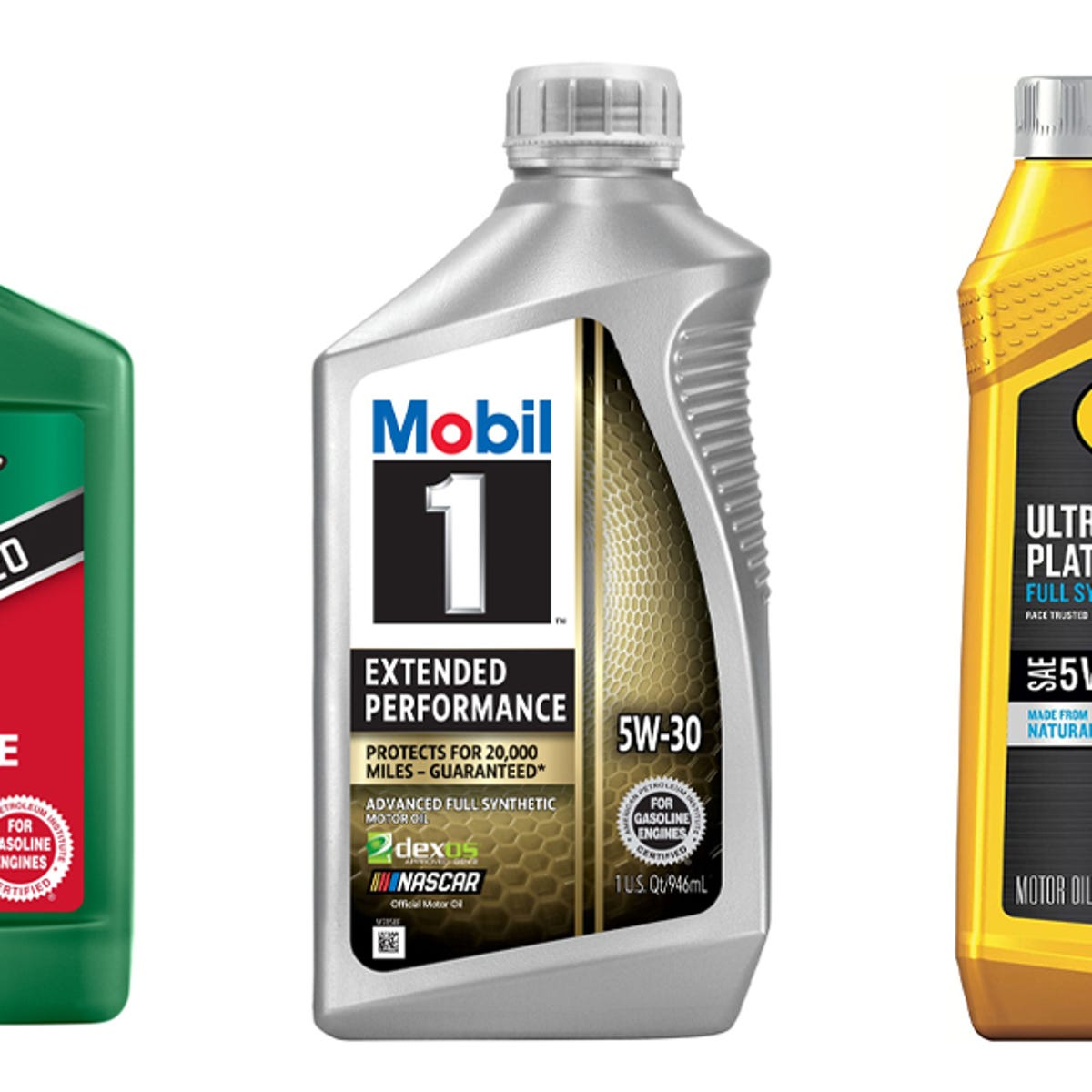
Credit: www.cnet.com
Maintaining Optimal Oil Levels
Keeping your car engine healthy requires the right oil level. Regular checks prevent engine damage. Consistent monitoring helps maintain performance and efficiency. This ensures smooth rides and prolongs engine life. A well-lubricated engine runs quietly and smoothly. It reduces wear and tear and minimizes repair costs. Proper oil levels contribute to better fuel economy. Understanding oil maintenance is essential for all car owners.
Checking Oil Regularly
Regular oil checks are crucial for engine health. Make it a routine to check oil levels. Use the dipstick to measure oil accurately. Let your engine cool before checking. Park on a flat surface for precise measurement. Clean the dipstick and reinsert it. Pull it out and read the oil level. Ensure the oil level is between the markers. Clean oil keeps the engine running smoothly. Replace dirty oil promptly for best results.
Signs Of Low Oil Levels
Low oil levels can harm your engine. Listen for unusual engine noises. Look for oil warning lights on the dashboard. Notice increased engine temperature during drives. Check for oil leaks under your car. Smell burning oil during operation. These are signs of low oil levels. Address them quickly to avoid damage. Regular checks prevent these issues. Maintain optimal levels for a healthy engine.

Credit: enginelearner.com
Frequently Asked Questions
Which Oil Is Better For An Engine?
Synthetic oil is generally better for engines. It offers superior protection, improves fuel efficiency, and lasts longer. Always check your vehicle’s manual for the recommended oil type. Regular maintenance and oil changes enhance engine performance and longevity.
Which Oil Is Better, 5w30 Or 10w30?
5W30 is better for cold climates due to its lower viscosity. 10W30 suits warmer conditions and older engines. Choose based on your vehicle’s requirements and climate. Always consult your car’s manual for manufacturer recommendations.
What’s The Best Oil For High Mileage Engines?
High mileage engines benefit from using synthetic oil designed for older vehicles. It reduces wear and maintains performance. Look for oils with additives that condition seals and reduce leaks. Brands like Mobil 1 and Valvoline offer specialized high mileage options.
Regular oil changes enhance engine longevity and efficiency.
What Type Of Engine Oil Should I Put In My Car?
Check your car’s manual for the recommended engine oil type. Use oil with the correct viscosity and specifications. Consider synthetic oil for better performance. Ensure compatibility with your vehicle’s requirements. Consult a professional if unsure.
Conclusion
Choosing the right oil keeps your car engine running smoothly. Each type offers unique benefits, fitting different needs and engines. Synthetic oils often provide better protection and efficiency. Conventional oils, though, can be more budget-friendly. High-mileage oils are great for older engines, offering extra care.
Always check your car’s manual for recommendations. Your engine’s health depends on the oil you use. A well-chosen oil boosts performance and lifespan. Keep your engine happy with regular oil changes. This ensures safety and reliability on the road. Make informed choices to enjoy every drive.

